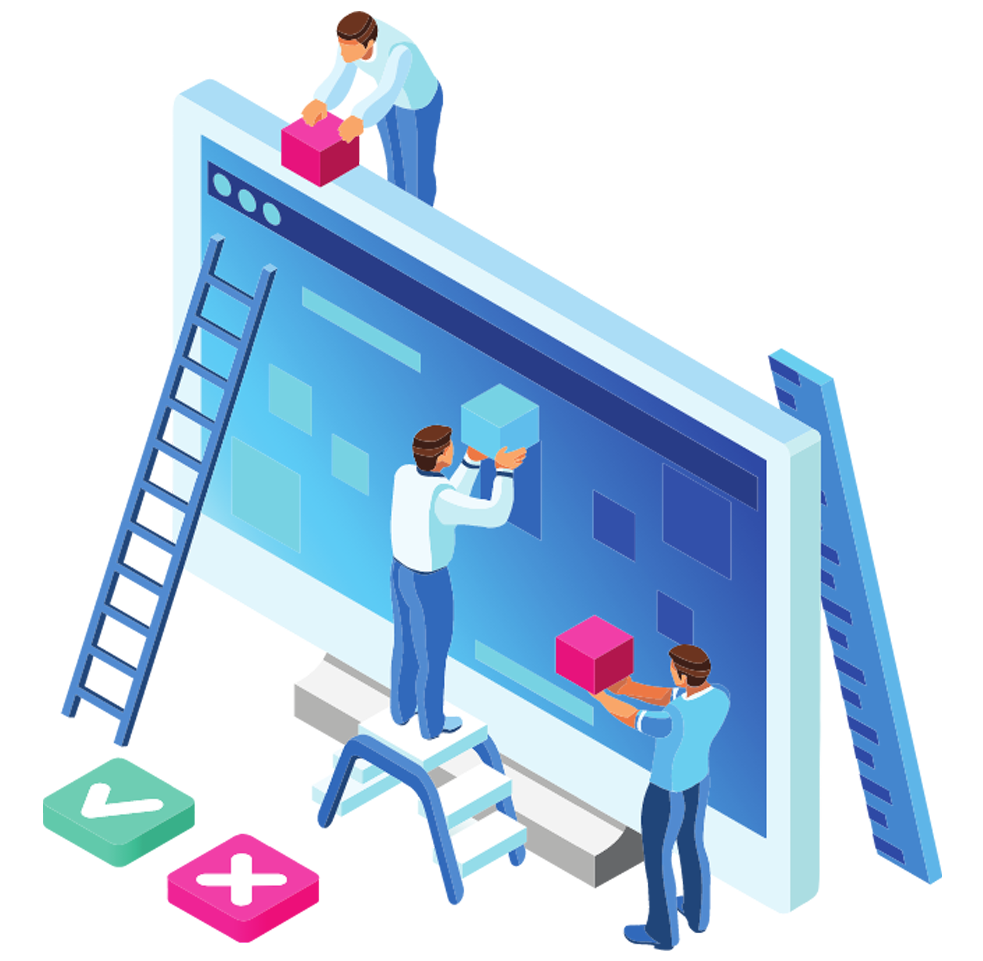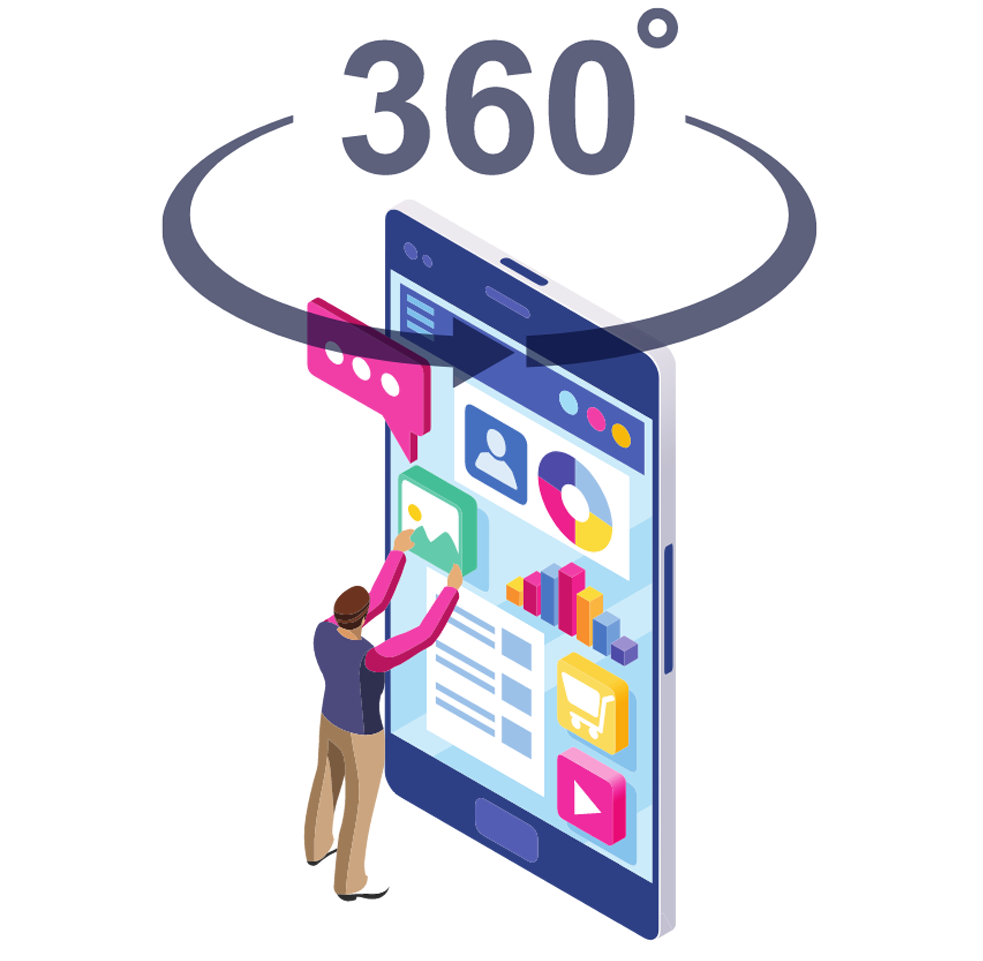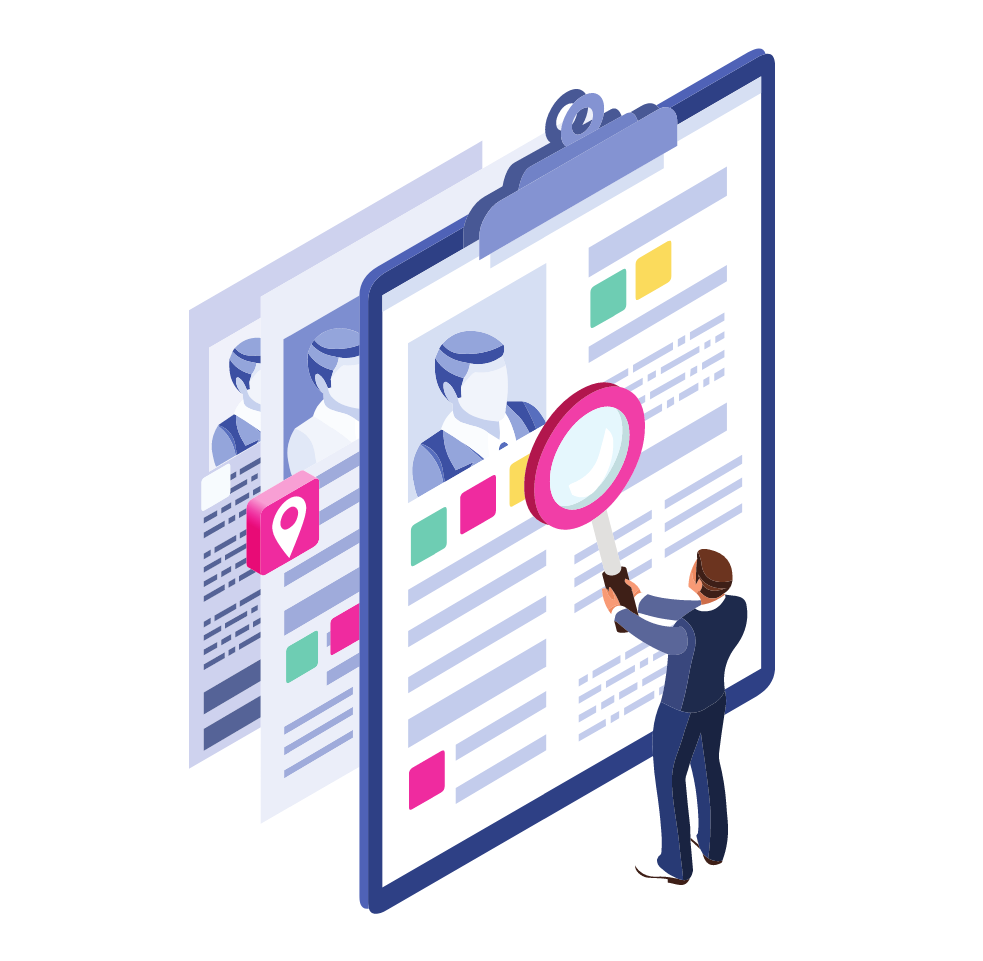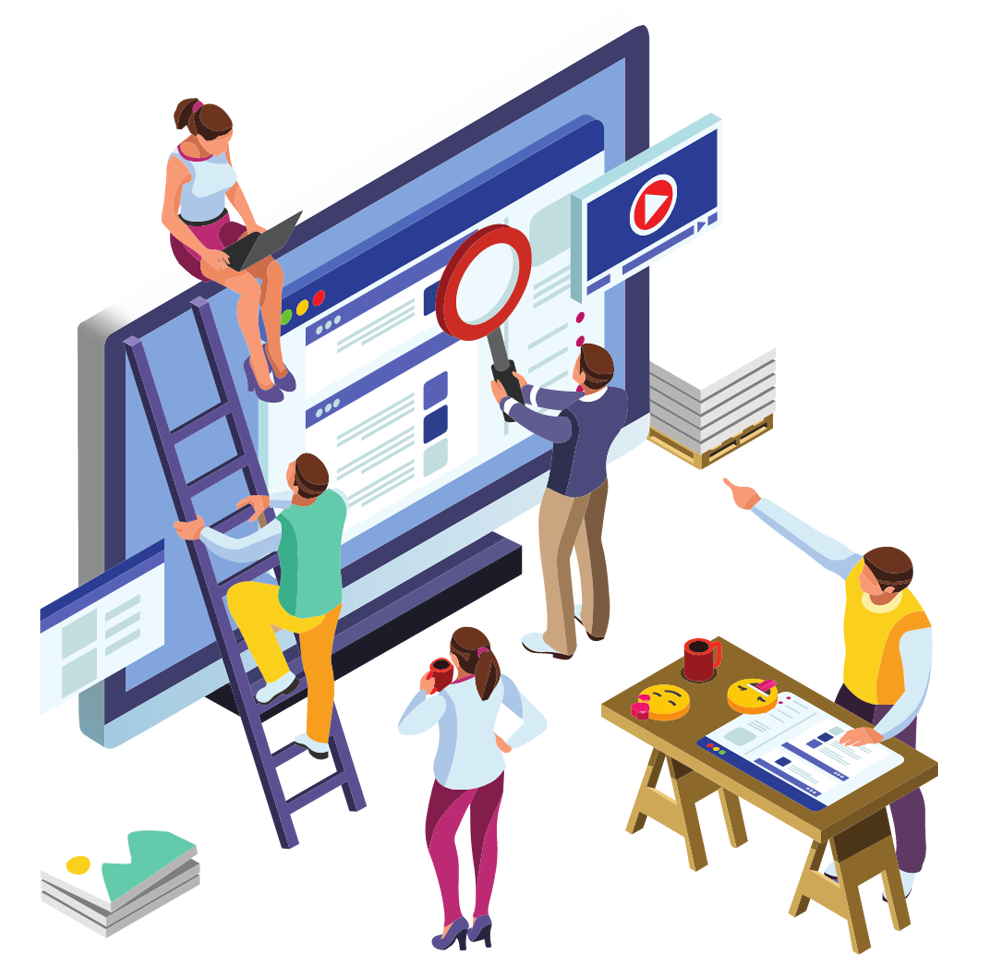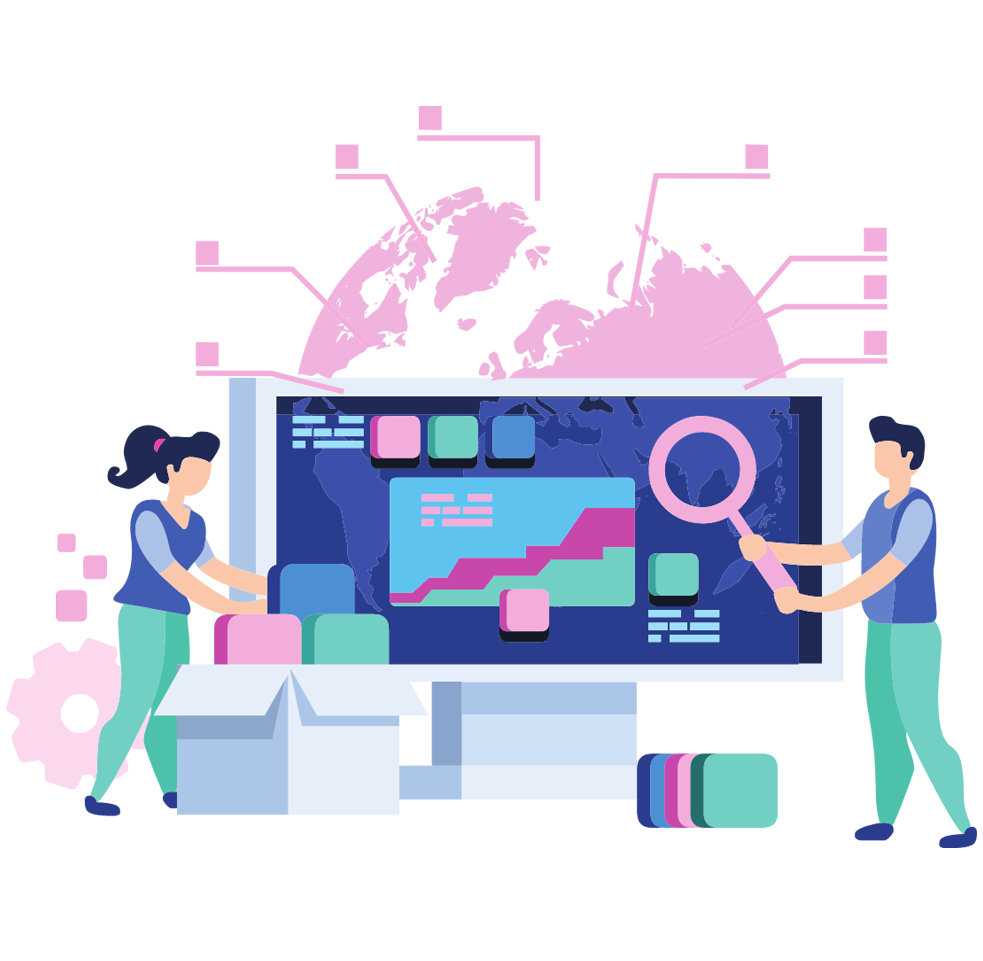B2B (Business to Business) sales involve the sale of goods or services by one company to another. This type of activity is distinguished by larger transaction sizes and sales volumes. In B2B, it is essential to have a thorough understanding of counterparties – their needs and challenges and the industries in which they operate.
What are the characteristics of B2B sales?
1) Higher transaction values
Business-to-business sales typically involve larger orders and more expensive products, which contributes to higher average transaction values. Companies are generally willing to pay a higher price for the goods or services they need if they see value in them.
2) Number of stakeholders
Business-to-business sales often involve several stakeholders on the buyer’s side, and rarely depend on the agreement of just one person. Some stakeholders may only influence the sale, while others will have the authority to sign the final contract. More people involved means more time and effort for the salesperson to convince each stakeholder.

3) Professional buyers
Companies buy products and services that can have a significant impact on their business. This justifies the due diligence they exercise in making any decisions. Some companies even hire professionals to guide their purchasing decisions. B2B sellers also need discipline and a high level of knowledge to satisfactorily address buyers’ objections and arguments.
4) Fewer customers
Due to the nature of most B2B products and services, the addressable market for a B2B seller is often quite narrow, especially compared to B2C. B2B customers have a higher LTV (Customer Lifetime Value), compensating for their smaller number and high acquisition costs.
5) Long B2B sales cycles
The B2B sales cycle tends to be long due to the involvement of multiple stakeholders and decision-makers, higher average transaction values, complex buying processes, and the significant impact of purchases and offers on the buyer’s business. A typical B2B sales cycle can last several months and involve many meetings, emails, and phone calls.
Additionally, relationship building and nurturing through repeat business play an important role in B2B sales. After all, it costs 5 to 10 times more to acquire new customers than to retain existing ones!
You can find a lot of interesting information about B2B sales here.
The role of Salesforce as a CRM system in B2B sales and the advantages of implementing it
Improved visibility and efficiency
At each stage of the sales process, you can benefit from the functionality of the B2B CRM system. The information should be tailored to the company’s specific sales cycle, known as the sales funnel, to be most useful. Divided into several phases, the cycle allows monitoring of each potential consumer at each stage of the funnel. This makes it possible to respond efficiently to their requirements, as well as to identify where a potential consumer withdraws from the process.
Salesforce gets in the game right from the start by automatically evaluating potential customers based on artificial intelligence – even before the customer has a conversation with a salesperson. Cloud solutions are among the most effective methods of qualifying B2B prospects, which in turn enables prioritization of potential customers, resulting in increased conversion rates.
Salesforce Sales Cloud
It is a comprehensive set of tools that can help B2B salespeople increase productivity. This cloud solution has the ability to automate sales operations, streamline complex procedures and facilitate collaboration inside and outside the organization. Sales Cloud stands out for its ease of configuration and scalability, making it ideal for companies of all sizes and industries. An important aspect of Sales Cloud is its ability to integrate with other Salesforce products and third-party platforms, as well as access to a 360-degree view of all B2B customers.
What are the advantages of cloud solutions?
Speeding up business operations
In the digital age, speed is an important factor in staying competitive. Cloud computing accelerates business processes – this is due to the centralization of data. Access to products and services is also increased, and real-time collaboration is possible. Every time you add or update files in the cloud, all team members who have access to them see the latest version. There is no need to email files back and forth, so you save time.
Another way the cloud speeds things up is by reducing the number of physical resources required by each company. In the past, growing companies had to invest in an extensive infrastructure to support business operations and store on-premise data, but now the burden is on cloud providers. This allows organizations to get access to better technology faster.

Personalized interactions with customers
The Internet is making it easier to do business on a larger scale with more contractors, and the number of in-person business interactions has decreased significantly. However, cloud technology is countering this with modern business software. The cloud platforms available today aim to support complex pricing models and diverse product portfolios to provide customized experiences for different customer groups.
Salesforce always adapts to the behavior of prospects, so-called sales leads, and customers in real-time. All data is updated and stored in the cloud. By the time a potential customer talks to a B2B salesperson on the phone, your representative will probably already:
- know which pages on the company’s site a particular lead has visited,
- have created a general demographic profile of a given caller, as well as a
- schedule of their interactions with the company.
This will make it easier for the sales representative to tailor the presentation to the potential customer’s specific interests and concerns by creating a personalized experience.
In summary, business-to-business sales has changed, but for the better. With more tools available to buyers and sellers, salespeople can proactively reach potential buyers at the right time. As business buyers expect a highly personalized buying experience, sellers must leverage data-driven tools as well as their social skills. Responding to the needs of business buyers and building lasting relationships with them is the key to success in B2B sales.
We hope you enjoyed the article! On this subpage, you can learn more about the Sales Cloud solution. If you have any questions, consult with our specialists, who will advise you on the best tools for your organization.













